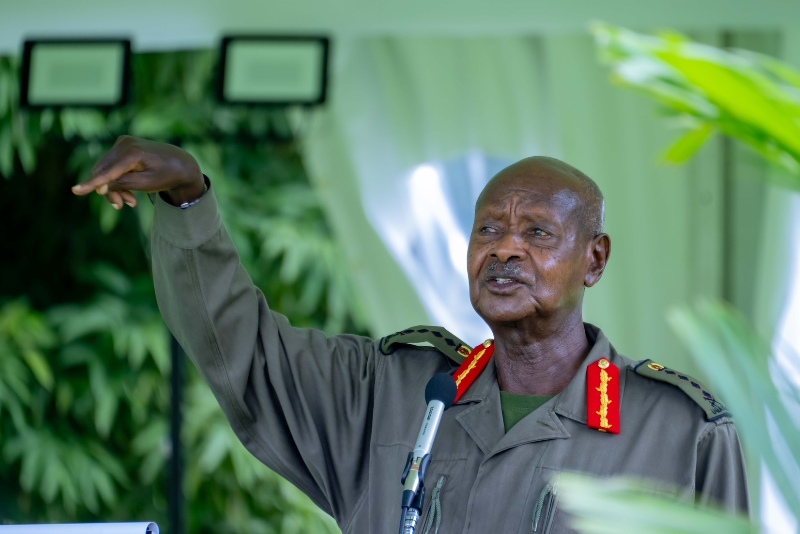From Peacekeepers to Political Enforcers? Museveni tasks UPDF with cracking down on ‘intimidators’
While the State positions these actions as safeguarding democracy, opposition leaders and civil society actors argue the opposite — that the UPDF is increasingly being used to silence critics, suppress opposition mobilization, and erode democratic freedoms.

President Yoweri Museveni has once again turned to the military to address political tensions in Uganda, directing the Uganda People’s Defence Forces (UPDF) to “deal with any political intimidators” in what critics say is a troubling continuation of military interference in civic space.
Chairing the UPDF High Command and Defence Council at State House Entebbe, Museveni emphasized the army’s role not just in foreign peacekeeping but in maintaining “democratic order” at home — a phrase that has raised eyebrows among human rights defenders.
The President’s remarks, shared through UPDF’s Public Information Office led by Col. Chris Magezi, suggest an expanded internal policing role for the military, which some say blurs constitutional lines between civil and military authority.
“UPDF should not only focus on providing peace in countries like DR Congo, South Sudan and Somalia, but must also stop political harassment and intimidation within Uganda,” Museveni reportedly told the commanders.
The high-level security meeting, which included top brass such as Deputy Chief of Defence Forces Lt Gen Sam Okiding and SFC Commander Maj Gen David Mugisha, was meant to assess national security and regional dynamics. But for many observers, it signals a hardening stance against domestic political dissent — particularly at a time when incidents of forced disappearances and torture are on the rise.
Museveni’s call comes amid growing public outrage over the abduction of National Unity Platform (NUP) supporters, including Bobi Wine’s close aide Eddie Mutwe, whose incommunicado detention and alleged torture have been widely condemned.
While the State positions these actions as safeguarding democracy, opposition leaders and civil society actors argue the opposite — that the UPDF is increasingly being used to silence critics, suppress opposition mobilization, and erode democratic freedoms.
“Every election cycle, we see the same pattern,” said one Kampala-based political analyst. “The military is activated not against foreign threats, but against Ugandan citizens who challenge the regime.”
In his remarks following the meeting, First Son and senior military officer Gen Muhoozi Kainerugaba praised the President’s leadership and emphasized UPDF’s contributions to regional security. He also noted ongoing training exchanges and defence partnerships as signs of Uganda’s growing military influence in East Africa.
“Uganda remains secure,” Muhoozi said, even as images and reports of abducted opposition supporters continue to surface online, casting a shadow over that claim.
The meeting was also attended by Minister of Defence Jacob Oboth Oboth, Minister of State for Defence and Veteran Affairs Huda Oleru Abason, and Permanent Secretary Rosette Byengoma — cementing the close collaboration between Uganda’s civilian government and its military apparatus.
But as the country heads toward another highly contested election period, the President’s latest directive may further entrench fears that Uganda’s politics are becoming increasingly militarized. The line between safeguarding democracy and suppressing it is, for many, becoming dangerously thin.







